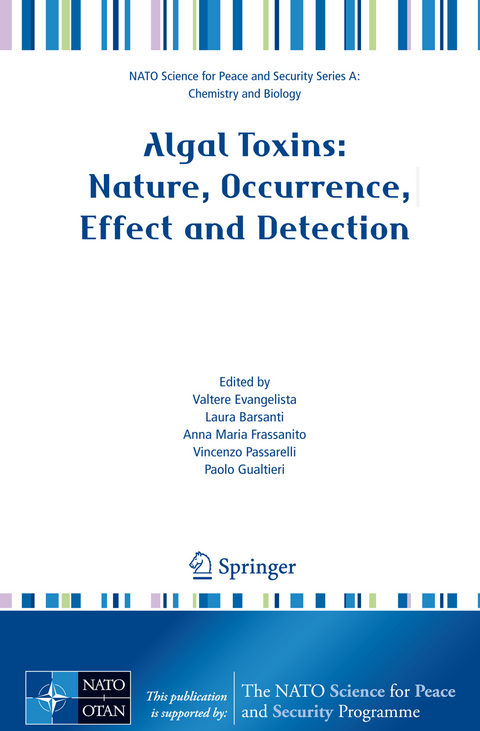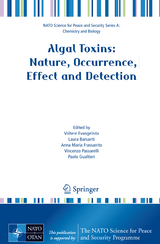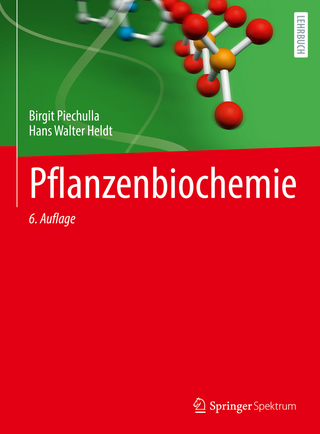Algal Toxins: Nature, Occurrence, Effect and Detection
Springer-Verlag New York Inc.
978-1-4020-8478-2 (ISBN)
The World of Algae.- Cyanobacterial Diversity in Relation to the Environment.- Toxicity of Fresh Water Algal Toxins to Humans and Animals.- Toxicity of Sea Algal Toxins to Humans and Animals.- The Role of Allelopathy for Harmful Algae Bloom Formation.- Checklist of Phytoplankton on the South Coast of Murcia (SE Spain, SW Mediterranean Sea).- Toxic Pseudo-nitzschia Populations from the Middle Tyrrhenian Sea (Mediterranean Sea, Italy).- Algal Blooms in Estonian Small Lakes.- Comparative Estimation of Sensor Organisms Sensitivity for Determination of Water Toxicity.- Biochemical Method for Quantitative Estimation of Cyanobacteria Toxins.- Using of Laser-Doppler Spectrometry for Determination of Toxicity Degree of Chemical and Natural Compounds.- PCR Techniques as Diagnostic Tools for the Identification and Enumeration of Toxic Marine Phytoplankton Species.- Detection of Phytoplankton with Nucleic Acid Sensors.- Development of Sensors to Trace Toxins from Dinoflagellates and Other Algae to Seafood.- Recombinant Formaldehyde Dehydrogenase and Gene-Engineered Methylotrophic Yeasts as Bioanalitycal Instruments for Assay of Toxic Formaldehyde.- Electrochemical Sensing Methods: A Brief Review.- Oddities and Curiosities in the Algal World.
| Reihe/Serie | NATO Science for Peace and Security Series |
|---|---|
| Zusatzinfo | VIII, 399 p. |
| Verlagsort | New York, NY |
| Sprache | englisch |
| Maße | 155 x 235 mm |
| Themenwelt | Naturwissenschaften ► Biologie ► Biochemie |
| Naturwissenschaften ► Biologie ► Botanik | |
| Naturwissenschaften ► Biologie ► Limnologie / Meeresbiologie | |
| ISBN-10 | 1-4020-8478-1 / 1402084781 |
| ISBN-13 | 978-1-4020-8478-2 / 9781402084782 |
| Zustand | Neuware |
| Haben Sie eine Frage zum Produkt? |
aus dem Bereich




